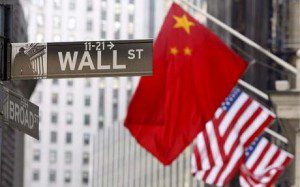In a new report published by the London based St. Paul’s Institute corporate  responsibility is an illusion, morality among bankers has dropped sharply, and a sense of duty to the community has eroded.
responsibility is an illusion, morality among bankers has dropped sharply, and a sense of duty to the community has eroded.
According to Stephen Bates of The Guardian, the report questioned “500 bankers and other financial sector workers about the ethics of business practices in the City. It found a substantial number accepting they are overpaid compared with professions such as teachers and nurses …” He added that “Most could not recall the Latin motto of the City of London: Dictum Meum Pactum: My Word is My Bond.”
Independent of the report, on this side of the pond Bank of America has a tarnished reputation stemming from attempts to impose a $5 debit card fee, a bank survey that ranks it toward the bottom, accusations that it contributed  to the mortgage mess, and a former CEO who left with $125 million in benefits now being sued for failure to disclose material information regarding an acquisition.
to the mortgage mess, and a former CEO who left with $125 million in benefits now being sued for failure to disclose material information regarding an acquisition.
Bryan Moynihan, the current CEO of Bank of America, exacerbated the negative attention by chiding critics: “I, like you, get a little incensed when you think about how much good all of you do, whether it’s volunteer hours, charitable giving we do, serving clients and customers well, you ought to think a little about that before you start yelling at us.” Mr. Moynihan, like others in the industry, doesn’t get it.
Ethics, whether based on faith or a secular responsibility to the community and people in general, is on life-support. Despite books, ethics consultants, internal ethics policies, and MBA courses taught on the subject, the application of high ethical standards isn’t occurring.
Obvious questions are avoided, overlooked, or perhaps not even asked. Some of them include:
What is corporate responsibility?
Why do normally good people do unethical things?
What are the consequences for certain business models?
Do ethics have to be faith based in order to be valued and applied?
What should be the role of personal faith in shaping business ethics?
Do donations to non-profits justify or excuse certain business practices?
Should personal faith be removed in determining how to maximize profit?
What are the negative impacts on families or the community for such models?
Is anyone reviewing business models from an ethical, not just legal, perspective?
Is an ethics policy in place and is there a genuine attempt made in its application?
A disconnect exists between the greed in the private sector and the personal, religious, or spiritual values that most decent people want to incorporate in their personal and professional lives.
Perhaps some of the most important questions are yet to be asked and answered. What keeps decent people in the banking industry from developing or living by principled standards? What needs to be done to help them do it? How can there be self-correction if they go off track?
Paul is author of Credit Card Usury and the Christian Failure to Stop It.
© Paul Peter Jesep 2011.











